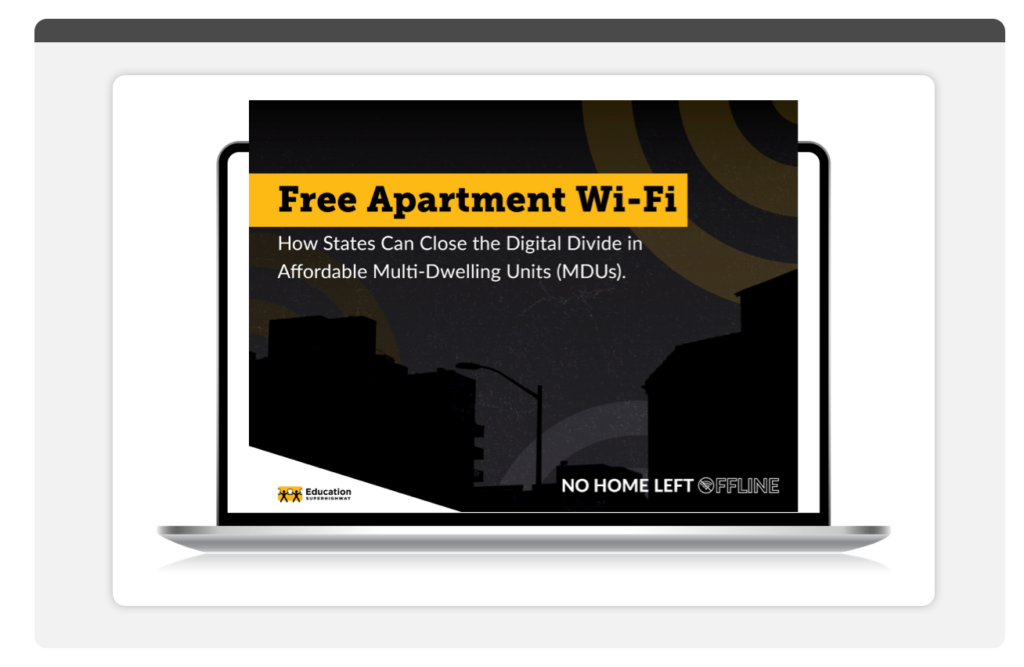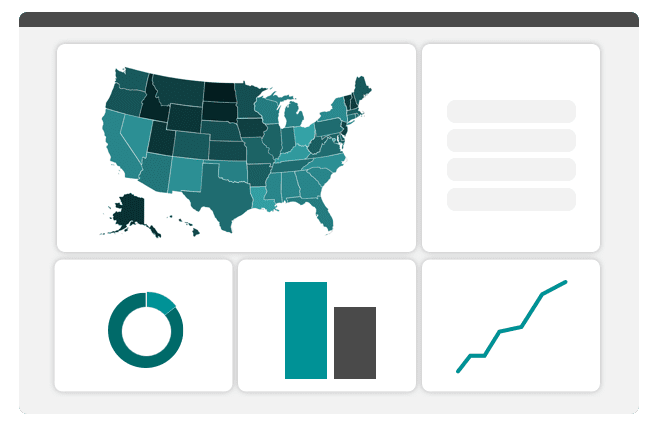This month, Maine became one of the first states to share their draft Broadband Action Plans and companion Digital Equity Plan as part of the $42.45 billion Broadband Equity, Access, and Deployment (BEAD) Program, which enables states and territories to expand high-speed internet access by funding planning, infrastructure deployment, and adoption programs.
Their plan highlights the complex challenges faced by Maine residents who lack internet access, including limited opportunities for remote work, education, and healthcare, emphasizing the importance of bridging the digital divide to ensure that all residents can participate in the digital economy. Their strategies and initiatives are organized into four categories 1) access and adoption, 2) innovation and investment, 3) digital literacy and skills, and 4) accountability and transparency. The state plan pays particular attention to tackling the broadband affordability gap, which makes up two-thirds of America’s digital divide.
Maine State Broadband Action Plan, Section 2.2 Goals & Objectives
Strategic Goal 5. Focus on Affordability
Improve the affordability of internet service so the high cost of reliable internet is no longer a significant barrier, ensuring that more Mainers are aware of the available support through initiatives like the Affordable Connectivity Program.
- Lead and expand the ACP4ME Campaign, which provides support statewide with materials and training for partners to conduct outreach and enrollment activities.
- Engage with our partners to explore best practices and other policy solutions, programs, and pilots that could provide support if the ACP is not funded beyond 2024.
- Work with the affordable housing community to research, launch, and fund an Affordable Housing Connectivity Program, ensuring that the thousands of people living in low-income housing units in Maine have affordable access and the support they need to fully connect, including apartment Wi-Fi, digital skill training, low-cost devices and technical support, and internet safety education.
- Identify and incentivize options for multiple services strategies for extremely high-cost unserved locations and underserved locations to increase competitive markets where possible.
Accelerating Affordable Connectivity Program Adoption
Maine’s plans emphasize the importance of partnerships and collaboration with organizations like EducationSuperHighway, who have recently partnered with the Maine Connectivity Authority (MCA) on the ACP4ME campaign – a new statewide initiative to increase awareness and enrollment in the Affordable Connectivity Program (ACP).
In Maine, 238,710 households are eligible for the ACP, yet only 78,476 (33% of those eligible) have enrolled. Our partnership has built a statewide coalition of local communities and trusted institutions to raise awareness of this critical program through earned and social media. Through the ACP4ME campaign, MCA aims to increase enrollment in the Affordable Connectivity Program to 54% of eligible households by 2029.
Investing In Free Apartment Wi-Fi Programs
Maine has also recognized the importance of bridging the 20-25% of the digital divide that is concentrated in affordable multi-dwelling units (MDUs). Their Affordable Housing Connectivity Program includes digital skill training, affordable devices, technical support, and internet safety education. It also seeks to leverage improvements in Wi-Fi technology that have made it possible to connect units in these buildings to reliable broadband service by deploying Wi-Fi access points throughout the property and then connecting the building network to a fiber connection. Modeled after how Wi-Fi is delivered in most hotels today, Free Apartment Wi-Fi programs are one of the quickest and most cost-effective ways to connect 10,000 unconnected people in Maine to reliable high-speed home internet.
The FCC National Broadband Map has identified 142 MDUs in Maine as unserved and underserved, yet, as the map only identifies multifamily housing developments as one Broadband Serviceable Location (BSL), it significantly understates the number of unserved and underserved households in those MDUs. An additional 27 MDUs are eligible to have free Wi-Fi networks installed as a priority use of BEAD funds. Many of these buildings are highly likely to be unserved or underserved, and EducationSuperHighway is excited to support the state with data and model language for Volume 1 of their Initial Proposals and to follow the National Telecommunications and Information Administration’s (NTIA) BEAD Model Challenge Process to determine which of these additional buildings need to be prioritized for BEAD funding.
All of EducationSuperHighway’s resources and support are provided to states at no cost. For more information, contact Adeyinka Ogunlegan, Vice President, Government Affairs and Policy.






